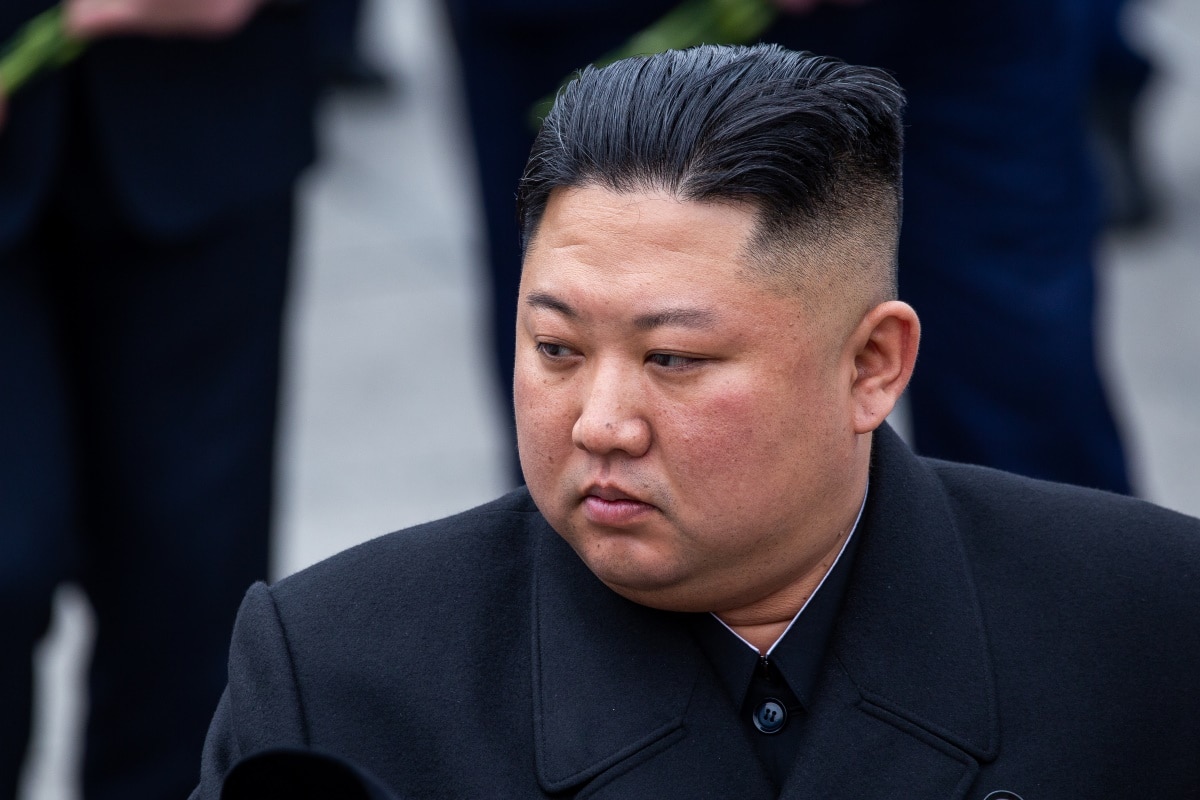It has been reported that Russia is using North Korean missiles in its invasion of Ukraine, benefiting both Putin and generating revenue for Kim Jong Un’s nuclear arsenal.
Conflict Escalation In Ukraine
Russia has fired North Korean-supplied short-range ballistic missiles into Ukraine not once but twice within the past week. This marks a significant escalation in the conflict, carrying profound implications for both the ongoing war in Europe and broader security on the Korean Peninsula, bringing with it many potential repercussions for both Europe and Asia.
The gravity of the situation lies in the fact that, according to National Security Council spokesperson John Kirby, North Korean-made missiles were deliberately fired into Ukraine on two separate occasions – first on December 30 and then again on January 2. The January 2 assault, characterized by the firing of multiple missiles, was part of a larger and more ominous Russian assault, while the December 30 attack involved a lone missile that fell into an open field.
These launches added to the approximately 500 missiles and drones fired at Ukraine during the New Year’s holiday, as reported by Kyiv. “Due in part to our sanctions and export controls, Russia has become increasingly isolated on the world stage and they’ve been forced to look to like-minded states for military equipment,” Kirby said, “As we’ve been warning publicly, one of those states is North Korea.”
North Korea’s Role in the Escalation
The involvement of North Korea in supplying weapons for use in the conflict represents a concerning escalation in Pyongyang’s support for Moscow. Analysts, including Kirby, believe that North Korea’s participation brings serious implications not only for the war in Ukraine but also for security on the Korean Peninsula. The integration of North Korean missiles into the Ukrainian conflict adds a potentially volatile escalation to the war.
Kirby and analysts argue that the introduction of North Korean weapons into the Ukrainian conflict will have far-reaching effects across the Korean Peninsula approximately 7,500 kilometres away. “This is a significant and concerning escalation in the DPRK’s support for Russia,” Kirby said, followed by, “We expect Russia and North Korea to learn from these launches.”
The utilisation of these North Korean missiles provides Pyongyang with invaluable data that cannot be obtained through testing programs alone. Experts suggest that North Korea can observe how its missiles perform in an operational environment, especially against Western missile defense systems. The strategic implications extend beyond the immediate conflict in Ukraine, affecting the security of nations in East Asia.
Consequences for South Korea and the Region
Kirby suggested that “In return for its support we assess that Pyongyang is seeking military assistance from Russia including fighter aircraft, surface-to-air missiles, armoured vehicles, ballistic missile production equipment, war materials and other advanced technologies”.
This potential collaboration raises substantial security concerns for the Korean Peninsula and the broader Indo-Pacific region. The areas identified by Kirby are precisely where North Korea’s adversaries, including South Korea, the US, and Japan, possess significant military advantages.
The collaboration between Russia and North Korea carries immediate benefits for both nations, each facing unique challenges. Analysts suggest that Russia, grappling with increased isolation due to sanctions and export controls, is turning to North Korea for military equipment.
The introduction of North Korean short-range ballistic missiles allows Russia to bolster its missile stocks without depleting its own inventory. Additionally, it could enhance Russia’s ability to conduct deep strikes without compromising its limited missile reserves.
Monetary and Strategic Gains for North Korea
For North Korea, the collaboration serves as a lucrative source of export revenue, particularly through the sale of weapons. One expert, Lee Jang Wook, noted that the revenue generated can significantly support North Korea’s nuclear weapons program, “The first biggest benefit will be North Korea’s weapons to act as another export revenue,” he said, “And this revenue can be another monetary support to mass create more nuclear weapons.”
As North Korean missiles become an integral part of the conflict, the situation for Ukraine becomes increasingly troubling. Kirby anticipates that Russia might use additional North Korean missiles to target Ukraine’s civilian infrastructure and harm innocent civilians.
The post Russia Fires North Korean Missiles in Ukraine, Raising War Tension and Helping Fund Kim’s Nuclear Plans first appeared on Edge Media.
Featured Image Credit: Shutterstock / Alexander Khitrov.
Grant Gallacher is a seasoned writer with expertise in politics and impactful daily news. His work, deeply rooted in addressing issues that resonate with a wide audience, showcases an unwavering commitment to bringing forth the stories that matter. He is also known for satirical writing and stand up comedy.

